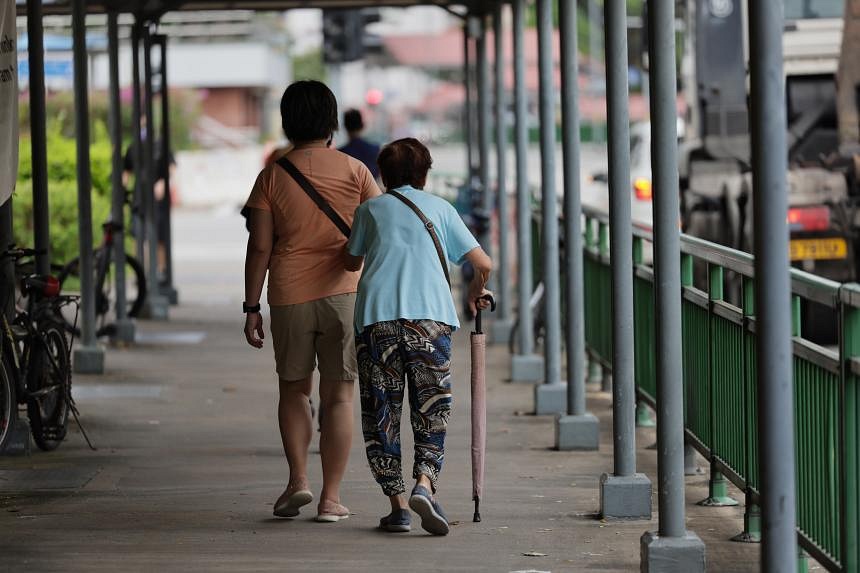SINGAPORE – Poor health is the topmost concern that Singaporeans have about growing old, followed by memory decline and having to depend on others in their senior years, a recent online survey has found.
Beyond these conventional worries associated with ageing, the survey also found that maintaining one’s appearance is an important consideration as one ages.
RySense, a not-for-profit firm set up by the Ministry of Digital Development and Information (the former Ministry of Communications and Information), surveyed 1,048 people from its proprietary online panel in April 2024 to find out their thoughts and feelings about growing old.
They were split into five age groups, starting from 15 to 29 years and ending with 65 years and above. Of the sample size, all were Singapore citizens except for 69 permanent residents.
Not surprisingly, about 79 per cent of respondents did not look forward to growing old, even though they were not afraid of it, the survey, which was initiated by research organisation RySense, found.
Some 17 per cent of the respondents felt indifferent about growing old, while 5 per cent looked forward to growing old.
Their main concerns about ageing were poor health (80 per cent), cognitive decline (50 per cent), having to depend on others (49 per cent), not having enough money (40 per cent), and loneliness (25 per cent).
When the respondents were asked to pick five phrases from a list that they associated with ageing, their top three picks were retirement (83 per cent), physical health decline (81 per cent) and changes in appearance (54 per cent).
Lack of financial security was not a key pick in all the age groups (31 per cent).
Wisdom and the opportunity to pursue hobbies also did not rank highly, with 32 per cent and 28 per cent of the respondents picking them, respectively.
Learning new skills fared worst at 15 per cent.
The survey also asked the respondents about the importance of appearance when they are aged 65 and above, and found that close to half (43 per cent) regarded looking young as important in their senior years.
“Hence, it is important for agencies and organisations working towards the well-being of seniors to look beyond the traditional concerns of ageing, to also consider how to help them take care of their physical appearance, improve their confidence, and feel good about themselves.” said Ms Lee Shu Hui, the group director of RySense’s research arm RySense Research.
In the survey, the majority (68 per cent) said they have taken action to maintain their appearance.
However, there is some stigma when it comes to doing cosmetic procedures such as facelifts or Botox, with a quarter saying that such procedures are not acceptable.
The survey comes amid a significant social transformation in Singapore, as one in four people here will be aged 65 and above by 2030.
More efforts have been launched to empower seniors to age well, including the Agency for Integrated Care’s Break The Silver Ceiling campaign, which showcases role models in their 60s and 70s in a bid to shatter ageist stereotypes and encourage Singaporeans to redefine how they think, live and age.


